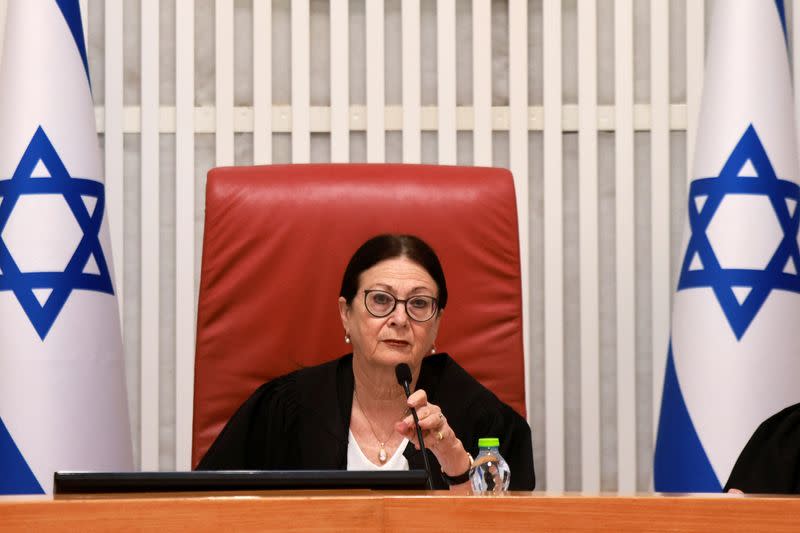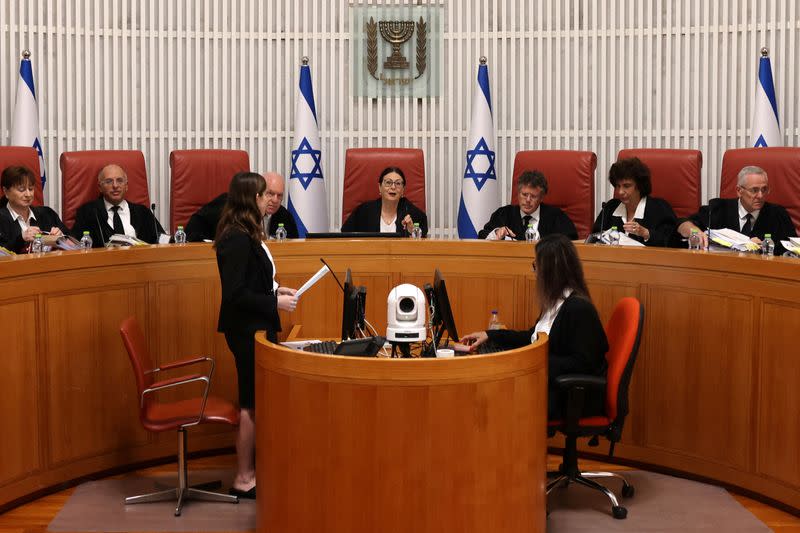Top Israeli court hears challenges to law limiting grounds for PM's removal
JERUSALEM (Reuters) -Israel's Supreme Court heard arguments on Thursday against a law passed by the ruling coalition limiting conditions for any removal of Prime Minister Benjamin Netanyahu from office, in the latest showdown among branches of government to grip the nation.
Political watchdog groups and an opposition party have challenged the March 23 amendment to a quasi-constitutional "Basic Law," which Netanyahu's own attorney general described as designed to preserve his tenure amid a long-running graft trial.
The law's proponents say it is meant to safeguard any democratically elected leader from a wrongful ouster.
Eleven of the Supreme Court's 15 judges convened for the televised hearing, presided over by Chief Justice Esther Hayut, who retires next month. She has openly criticised a judicial overhaul sought by Netanyahu's religious-nationalist coalition.
In a statement, Justice Minister Yariv Levin condemned the hearing as "a de facto discussion of rescinding the results of the election" that returned Netanyahu to power in December. The premier denies wrongdoing in three criminal cases against him.
In an evening interview with Israeli public television, Levin said he did not watch Thursday's court discussion because it was "invalid" and "an absurd theatre."
"It was a debate that should have never happened," Levin said. "In a democratic country you can't have a situation where the court will debate something that's not in its jurisdiction."
The full court bench is separately preparing a ruling on challenges to a July amendment voiding its power to overrule some cabinet-level decisions on the basis of "reasonableness".
Critics say that law removed one of the last checks on the executive and a coalition-controlled parliament, in a country that has no written constitution. Netanyahu argued for redress of what he calls overreach by an unrepresentative judiciary.
Next month, the court is due to hear appeals relating to the convening of a committee for appointing judges, delayed due to a dispute over a government bid to shake up its membership.
A ruling on the "incapacity clause", defining terms for deeming a premier unfit to serve, was not expected on Thursday.
The Supreme Court's options include upholding the legislation as is, quashing it or ruling that it must not come into effect before the next parliamentary elections. Attorney General Gali Baharav Miara has recommended the latter.
(Reporting by Maayan Lubell; Editing by Toby Chopra and Daniel Wallis)

